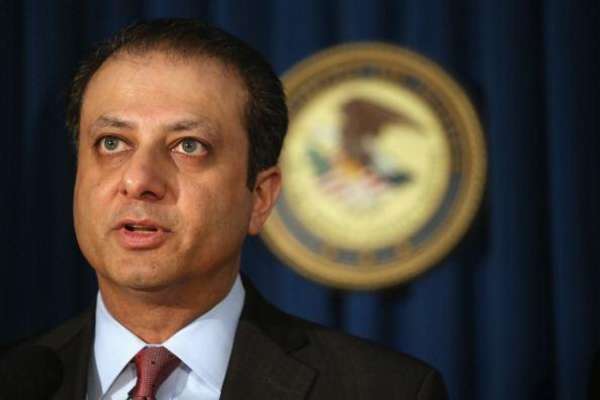Trump Tells Black Friday Prosecutor Preet Bharara “You’re Fired,” After US Attorney Refuses to Step Down
Posted on: March 13, 2017, 06:44h.
Last updated on: March 13, 2017, 08:39h.
Ousted federal prosecutor Preet Bharara changed the face of online gambling in the United States, and the now-former US Attorney for the Southern District of New York isn’t going away without a curtain call of controversy.

Known as a Wall Street crusader who targeted corruption and political immorality, Bharara’s tenure as the chief law enforcer in New York’s Southern District came to an end over the weekend after President Donald Trump’s administration terminated his employment. New US Attorney General Jeff Sessions ordered the firing of all Obama-appointed US attorneys, but Bharara refused to step down voluntarily.
“I did not resign. Moments ago I was fired,” Bharara tweeted after the dismissal. “Being the US attorney in SDNY will forever be the greatest honor of my professional life.”
After winning the presidency, Trump reportedly asked Bharara to stay on in his prosecutorial position. But Sessions was ready to do a legal overhaul across the board and clean shop. Late last week, Sessions asked 46 US attorneys to tender their resignations.
American Online Poker’s Grim Reaper
In 2009, Bharara was appointed by former President Barack Obama to the high-profile position. Two years later, on April 15, 2011, Bharara and the Department of Justice seized the online domains of PokerStars, Full Tilt Poker, and Absolute Poker/Ultimate Bet in a massive freeze that turned online poker on its ear.
In what became known to the poker community as “Black Friday,” the events effectively took internet poker offline for American players. Bharara’s shutdown of the major gambling websites was based on the Unlawful Internet Gambling Enforcement Act (UIGEA), the federal law passed in 2006 that made it illegal for payment processors and banks to facilitate deposits and withdrawals relating to gambling networks.
Big-Money Justice
Bharara certainly never shunned the limelight, and often went after high-profile cases that had mass headline appeal, including several involving gamblers.
Most recently, he nailed poker pro Travell Thomas last November in a $31 million fraudulent debt collection scheme, to which Thomas ultimately pled guilty. Along with the poker player, Bharara brought down 11 co-conspirators as well. The case was billed by the DOJ as the “largest debt collection scheme ever prosecuted.”
Another of his recent efforts involved superstar golfer Phil Mickelson and his relationship to notorious sports bettor Billy Walters. Though no charges have been brought against golf’s fan favorite, the case put a blemish on the athlete’s otherwise squeaky-clean image.
Prosecutors allege that Walters had made over $40 million through insider trading tips, and that the money has been used to bankroll his professional gambling career. Walters’ trial is expected to begin next week, and Mickelson might testify.
Bharara additionally went after gambling rings, one of the most notable cases being a takedown of 46 alleged mafia associates last August.
The prosecutor also led the investigation into former US Rep. Anthony Weiner’s (D-New York) “sexting” scandal that involved the congressman sending illicit text messages to an underage girl. Those headlines further damaged Hillary Clinton’s presidential efforts since Huma Abedin, Weiner’s now estranged wife, was the Democratic candidate’s top aide.
Depending on the media outlet, Bharara was either a “rock star” prosecutor, or a person who simply had it out for confrontational cases. His district included Manhattan, so Trump was no stranger to dealing with him.
In addition to going after massive fraud cases with gambling connections, Bharara prosecuted over 100 Wall Street executives for insider trading and financial offenses. But critics of his leadership say he often went after safer cases for “well-orchestrated press conferences and memorable sound bites,” according to ProPublica writer Jesse Eisinger.
No comments yet